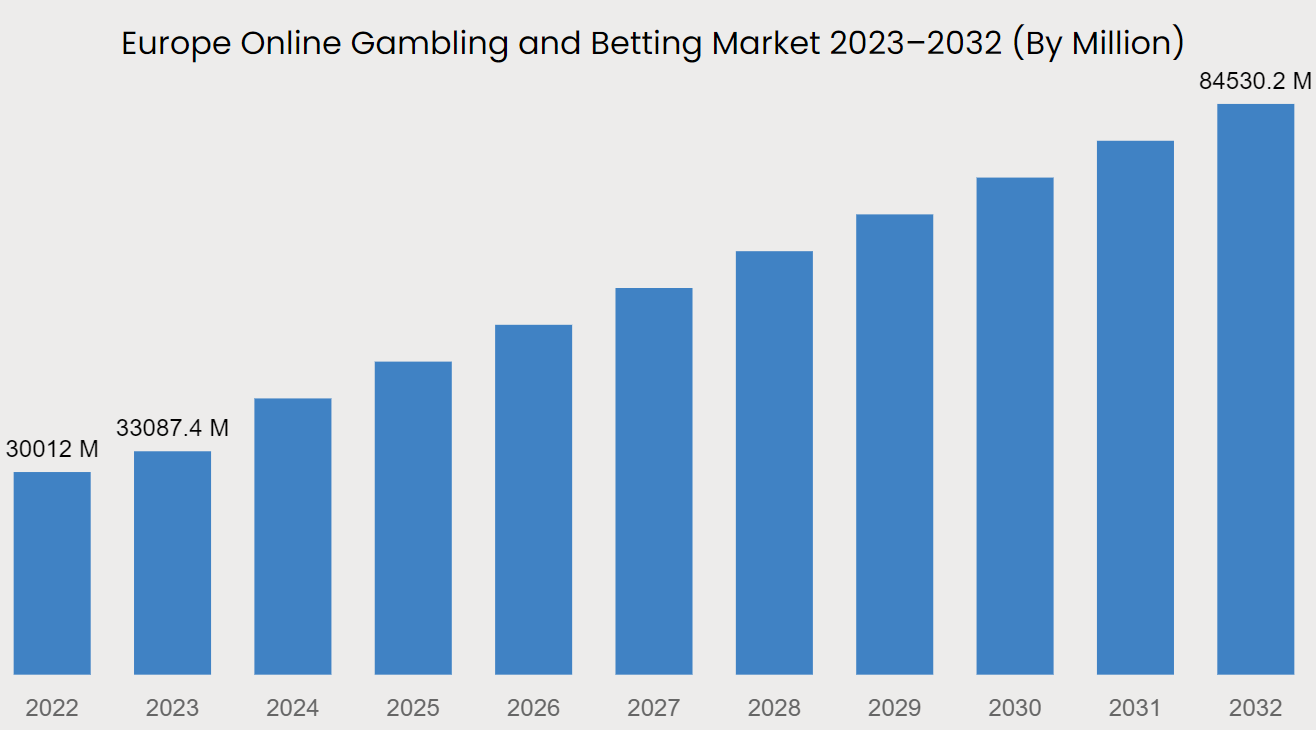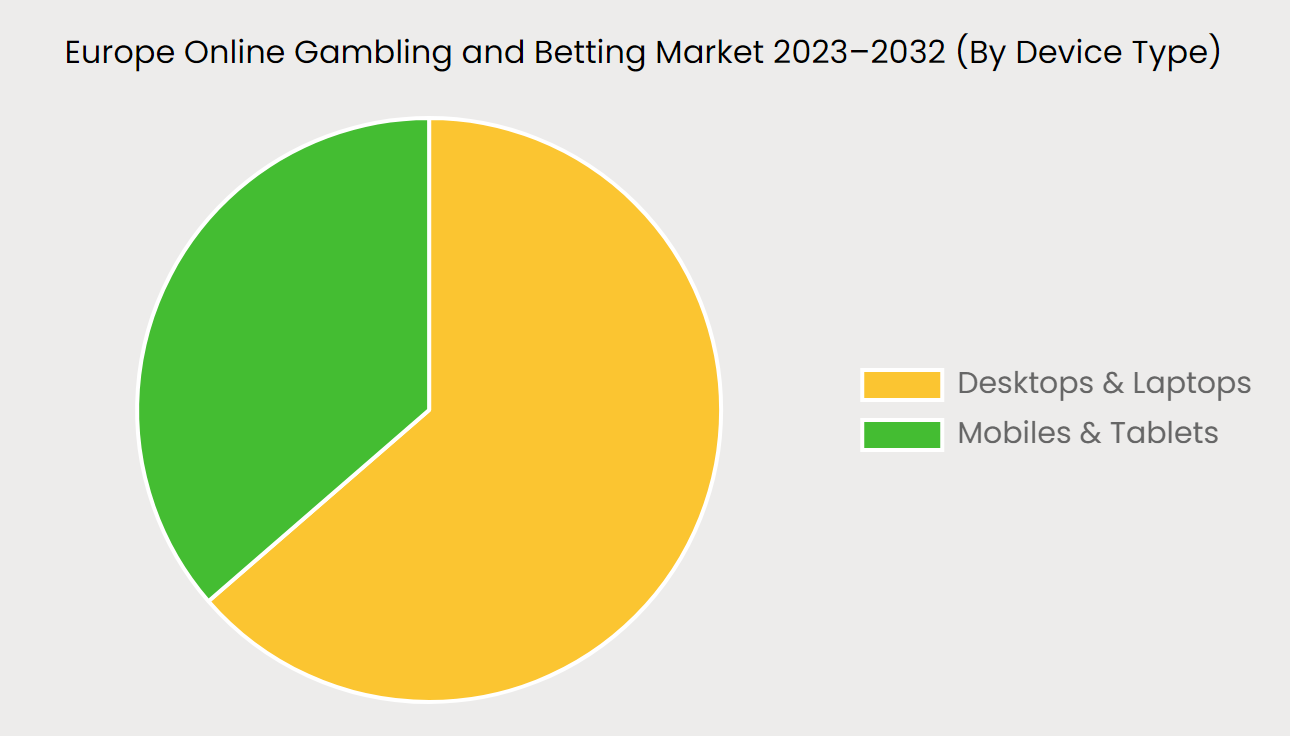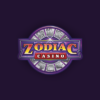The Online Casinos market is set to soar, with revenue projected to hit US$20.45 billion by 2024 and grow at an annual rate of 3.55% through 2029, reaching a staggering US$24.35 billion. Anticipated user numbers are equally impressive, expected to surge to 38.1 million by 2029, with user penetration climbing from 6.7% in 2024 to 7.5% in 2029. The average revenue per user (ARPU) is forecasted at US$0.60k. While the United States leads in revenue generation, with an estimated US$7,645.00 million in 2024, Canada boasts the highest user penetration rate at a projected 35.6%.
Definition
The online casinos market encompasses a sector within the broader online gambling industry, offering a diverse array of traditional casino games like blackjack, roulette, baccarat, and slot machines. These games are accessible via the internet, allowing players to enjoy them conveniently from the comfort of their homes or while on the move, utilizing various devices such as computers, tablets, and smartphones.
Additional Information
In this analysis, data is presented in terms of Gross Gambling Revenue (GGR), which represents the total value of bets made by customers minus the amount paid out in winnings. Key metrics include the number of users, the average revenue per user (ARPU), user penetration rate, and a breakdown of product shares within the overall online casino market. It’s important to note that the figures provided pertain to Business-to-Consumer (B2C) services.
In-Scope
The analysis covers a range of online gambling activities, including:
- Online Slot Machines: Popular titles like Starburst, Mega Moolah, and Gonzo’s Quest fall within the scope of this study. These virtual slot machines offer players a thrilling gaming experience with various themes and bonus features.
- Online Card Games: This category encompasses classic card games such as poker, blackjack, and baccarat, along with their numerous variants. Players can enjoy the excitement of these games online, competing against virtual opponents or participating in live dealer sessions for an authentic casino atmosphere.
- Online Roulette Games: The analysis includes online versions of roulette, including European, American, and French variations. These digital renditions faithfully replicate the excitement of spinning the wheel and placing bets, providing players with an immersive gaming experience from their preferred devices.
Out-of-Scope
The analysis excludes the following:
- Offline or Land-Based Casino Establishments: This category encompasses physical casinos and gaming halls where players engage in gambling activities in person. As the focus is on online gambling, offline establishments are not within the scope of this study.
- Skill-Based Games: Games such as chess, backgammon, and Go, which rely primarily on players’ skills rather than chance, are not included in this analysis. While they may involve wagering in some contexts, they differ significantly from traditional casino games in terms of gameplay and mechanics.
- Betting on Non-Casino Games: Wagering on events unrelated to casino games, such as sports, politics, and entertainment, is outside the scope of this study. While these activities involve betting, they fall into distinct categories and are not considered part of the online casino market.
Europe’s Online Gambling and Betting Market: Exploring Size, Trends, and Insights
Unraveling the intricacies of Europe’s online gambling and betting scene unveils a dynamic landscape characterized by various gaming types and device preferences. This comprehensive analysis delves into key segments such as poker, casino games, social gaming, lottery, bingo, and fantasy sports, examining trends and insights across different regions. By scrutinizing device usage patterns, including desktops & laptops and mobiles & tablets, alongside regional dynamics, this industry overview provides statistical data, competitive analysis, market share breakdowns, and forecasts spanning from 2024 to 2033.
Europe’s online gambling and betting market is on a trajectory of substantial growth, projected to surge at a robust Compound Annual Growth Rate (CAGR) of 11% from 2023 to 2032. Starting from a valuation of USD 30,012 million in 2022, the market is anticipated to reach a staggering USD 84,530.2 million by 2032, according to the latest research by the CMI Team.
This dynamic industry encompasses a broad spectrum of online gambling activities, ranging from sports betting to casino games, poker, bingo, and lottery. The market’s expansion is propelled by several key factors, including the proliferation of internet access, the widespread adoption of smartphones and mobile devices, and favorable regulatory frameworks across many European countries.
Licensed operators and platforms facilitate online gambling services, enabling individuals to participate in remote gambling and betting using various devices, such as computers, smartphones, and other internet-enabled devices. The market reflects the growing popularity of online gambling, supported by digital innovations like mobile apps, virtual reality, and blockchain technology, which enrich the overall gambling experience.
Key Growth Factors:
- Increasing Internet Penetration: Europe has witnessed a significant rise in internet penetration, facilitating easy access to online gambling and betting services for a larger segment of the population. The surge in mobile gaming, fueled by smartphones and mobile devices, offers convenient access to gambling platforms anytime, anywhere, with user-friendly mobile apps and optimized websites further boosting this trend.
- Favorable Regulatory Changes: Many European countries have established favorable regulatory frameworks, creating secure and legally compliant environments for online gambling and betting operators and players. These regulations enhance consumer confidence, attracting international operators seeking to expand their market presence while contributing to overall market growth.
- Mobile Gaming: The widespread adoption of smartphones and mobile devices has revolutionized the online gambling and betting landscape, with mobile gaming witnessing a surge in popularity. Users can conveniently place bets and engage in gambling activities on the go, thanks to the rise of mobile apps and optimized mobile websites, driving significant market growth.
- Advancements in Technology: Technological advancements have transformed the online gambling and betting experience, attracting a broader player base and stimulating market growth. Innovations such as live dealer games, virtual reality (VR), and augmented reality (AR) have introduced immersive and interactive elements, enhancing the gambling experience’s realism and engagement.
- Increasing Acceptance and Popularity: Online gambling and betting have gained widespread social acceptance and mainstream recognition, shedding previous stigmas associated with gambling. The popularity of sports betting, fantasy sports, and online casinos has surged, contributing significantly to market expansion.
- Marketing and Advertising Efforts: Effective marketing and advertising strategies deployed by online gambling operators have played a pivotal role in market growth. Targeted marketing campaigns, attractive promotions, and strategic sponsorships have boosted brand visibility, attracted new players, and fostered customer loyalty.

Mergers and Acquisitions Reshaping Europe’s Online Gambling and Betting Market
The landscape of Europe’s online gambling and betting sector has been undergoing significant transformation through mergers and acquisitions in recent times. Several notable instances include:
- Kindred Group’s Acquisition of 32Red: In 2017, the multinational gambling operator Kindred Group acquired 32Red, an online casino operator. This strategic move bolstered Kindred Group’s presence in the online casino segment and augmented its market share across Europe.
- Betsson’s Acquisition of NetPlay TV: Swedish gambling company Betsson made headlines in 2017 with its acquisition of NetPlay TV, the owner of renowned online gaming brands such as SuperCasino and Jackpot247. This acquisition expanded Betsson’s portfolio and customer base, particularly strengthening its foothold in the United Kingdom market.
- GVC Holdings’ Acquisition of Ladbrokes Coral Group: GVC Holdings made waves in 2018 by acquiring the Ladbrokes Coral Group, a move that resulted in the formation of one of the largest online gambling and betting entities worldwide. By bringing together two industry giants, this acquisition significantly broadened their market reach and diversified their array of product offerings.
These strategic mergers and acquisitions have served as catalysts for companies looking to expand their product portfolios, penetrate new markets, and solidify their positions within the highly competitive Europe Online Gambling and Betting Market.
Comparative Analysis of the Related Market
| Aspect | Europe Online Gambling and Betting Market | North America Online Gambling and Betting Market | Global Online Gambling and Betting Market |
|---|---|---|---|
| CAGR (Compound Annual Growth Rate) | Approximately 11% | Approximately 11.3% | Approximately 12% |
| Projected Valuation by 2032 (in USD millions) | USD 84,530.2 Million | USD 34,685.3 Million | USD 145.6 Billion by 2030 |
Europe Online Gambling and Betting Market: Significant Threats
The Europe Online Gambling and Betting Market faces several significant threats that could impede its growth and profitability:
- Regulatory Restrictions: The industry is susceptible to stricter regulations and changes in existing laws, which may limit advertising, payment methods, or even ban certain types of online gambling. These restrictions hinder market access, increase compliance costs, and create uncertainties for operators.
- Legal and Compliance Challenges: Operators may encounter legal disputes concerning licensing, data privacy, or advertising practices. These challenges can result in financial penalties, reputational damage, or loss of licenses, necessitating navigation of complex legal landscapes and ensuring compliance across multiple jurisdictions.
- Cybersecurity Risks: The online nature of the industry exposes it to cybersecurity threats like data breaches, hacking attempts, and cyber-attacks, compromising customer information, eroding trust, and leading to financial losses. Operators must prioritize robust cybersecurity measures to protect their platforms and sensitive data.
- Consumer Protection Concerns: Ensuring consumer protection and responsible gambling practices is critical. Issues such as problem gambling, underage gambling, and fraudulent activities can harm consumers and operators’ reputations. Stricter regulations to enhance consumer protection may increase compliance costs and operational challenges.
- Competition and Market Saturation: The Europe online gambling and betting market is highly competitive, with numerous operators vying for market share. Saturation can lead to intense competition, lower profit margins, and increased marketing expenses. Operators must innovate, differentiate their offerings, and adapt to evolving consumer preferences to maintain competitiveness.
- Social Stigma and Public Perception: Despite its growth, online gambling still faces social stigma and negative perceptions in some segments of society. Concerns about gambling addiction, ethics, and societal impacts can lead to public scrutiny and potential backlash. Operators must address these concerns through responsible gambling practices and public education initiatives.
- Economic Factors: Economic downturns and financial instability can affect consumer discretionary spending, including gambling activities. During challenging economic times, individuals may reduce gambling expenditures, leading to revenue declines for operators. Economic factors such as inflation, unemployment, and shifts in consumer behavior pose risks to the industry’s stability.
| Feature of the Report | Details |
|---|---|
| Market Size in 2023 | USD 33,087.4 Million |
| Projected Market Size in 2032 | USD 84,530.2 Million |
| Market Size in 2022 | USD 30,012 Million |
| CAGR Growth Rate | 11% CAGR |
| Base Year | 2023 |
| Forecast Period | 2024-2033 |
| Key Segment | By Gaming Type, Device Type, and Region |
| Report Coverage | Revenue Estimation and Forecast, Company Profile, Competitive Landscape, Growth Factors, and Recent Trends |
| Regional Scope | Europe |
| Buying Options | Request tailored purchasing options to fulfill your requirements for research. |
Category-Wise Insights
By Gaming Type:
- Casino Games: Includes popular games like blackjack, slots, roulette, poker, and baccarat, simulating the experience of physical casinos.
- Sports Betting: Allows users to place bets on various sports matches, such as football, basketball, baseball, soccer, tennis, and horse racing.
- Poker: Platforms offering online poker games and tournaments, featuring variations like Texas Hold’em, Omaha, and Seven-Card Stud.
- Lottery: Online platforms enabling users to purchase tickets and participate in draws, offering a variety of lottery games with different jackpot sizes and odds.
By Device Type:
- Desktop/Laptop: Traditional devices offering a comprehensive and immersive gaming experience with larger screens, more processing power, and full keyboards.
Mobile Devices: Increasingly popular for online gambling and betting, with smartphones and tablets providing convenience through mobile apps and optimized websites. Portability and ease of use have driven the expansion of mobile gambling.

Regional Analysis of the Europe Online Gambling and Betting Market
The Europe Online Gambling and Betting Market can be dissected regionally, focusing on the presence of key players across different areas:
Western Europe: Countries like the United Kingdom, Germany, France, and Spain have witnessed significant growth in their online gambling markets, buoyed by favorable regulatory frameworks. These nations boast high rates of internet penetration and a robust gambling culture, leading to substantial market expansion. The United Kingdom stands out for its well-established online gambling industry and a plethora of licensed operators.
Northern Europe: Northern European nations such as Sweden, Norway, Finland, and Denmark also feature thriving and well-regulated online gambling markets. For instance, Sweden has implemented a licensing system to govern the market, ensuring a high level of consumer protection. With tech-savvy populations and widespread internet connectivity, these countries present attractive prospects for online gambling operators.
Southern Europe: Southern European countries like Italy, Greece, Portugal, and Malta have witnessed remarkable growth in the online gambling and betting sector. Italy, in particular, boasts a robust regulatory framework and a substantial number of licensed operators. The market in this region is primarily driven by the popularity of sports betting and casino games.
Central and Eastern Europe: Central and Eastern European countries, including Poland, Hungary, Czech Republic, and Romania, are experiencing a surge in interest in online gambling. These markets are undergoing regulatory transformations, with several countries introducing licensing systems to regulate online gambling activities. The region offers promising growth opportunities due to its sizable population, increasing internet penetration, and rising disposable incomes.

| Competitive Landscape – Europe Online Gambling and Betting Market |
|---|
| Key Players |
| Bet365 |
| William Hill |
| Paddy Power Betfair (Flutter Entertainment) |
| Kindred Group (Includes brands like Unibet 32Red and Maria Casino) |
| 888 Holdings |
| Betsson AB |
| LeoVegas |
| GVC Holdings (Entain) (Includes brands like Ladbrokes Coral and Bwin) |
| Betfair |
| PokerStars |
| Bwin |
| NordicBet |
| Mr Green |
| Interwetten |
| Sportingbet |
| Casumo |
| ComeOn |
| Betway |
| NetEnt |
| Evolution Gaming |
| Others |
| Market Segmentation |
| By Gaming Type |
| Poker |
| Casino |
| Social Gaming |
| Lottery |
| Bingo |
| Fantasy Sports |
| Sports Betting |
| – Football |
| – Rugby |
| – Basketball |
| – Hockey |
| – Cricket |
| – Others (Baseball, Cycling, etc.) |
| By Device Type |
| Desktops & Laptops |
| Mobiles & Tablets |
| By Gaming Source |
| Foreign Gaming Sources |
| Local Gaming Sources |
| Regional Coverage |
| Europe |
| – Germany |
| – France |
| – U.K. |
| – Italy |
| – Spain |
| – Rest of Europe |
FAQs: Europe Online Gambling & Betting Market
What are the key factors driving the market?
- Increasing Internet Penetration: Expanded internet access enables more individuals to engage in online gambling activities.
- Favourable Regulatory Changes: Supportive regulations create a secure environment for operators and players alike.
- Mobile Gaming: The rise of smartphones facilitates convenient access to gambling platforms, driving market growth.
- Advancements in Technology: Innovations like live dealer games and virtual reality enhance the gambling experience.
- Increasing Acceptance and Popularity: Online gambling gains mainstream acceptance, contributing to market expansion.
- Marketing and Advertising Efforts: Strategic promotions and advertising campaigns attract new players and foster market growth.
Which category dominated the market in 2022?
The “Gaming Type” category held sway over the market in 2022, reflecting the diverse range of gambling options available.
Who are the key players in the market?
Major players include Bet365, William Hill, Paddy Power Betfair (Flutter Entertainment), Kindred Group (including brands like Unibet, 32Red, and Maria Casino), 888 Holdings, Betsson AB, LeoVegas, GVC Holdings (Entain, including brands like Ladbrokes Coral and Bwin), Betfair, PokerStars, Bwin, NordicBet, Mr Green, Interwetten, Sportingbet, Casumo, ComeOn, Betway, NetEnt, Evolution Gaming, and others.
What is the projected growth rate for the market?
The market is forecasted to grow at a Compound Annual Growth Rate (CAGR) of 11% during the period 2023-2032.
What was the market size in 2022?
The Europe Online Gambling & Betting Market was valued at USD 30,012 Million in 2022, indicating a substantial market presence and potential for further growth.





















